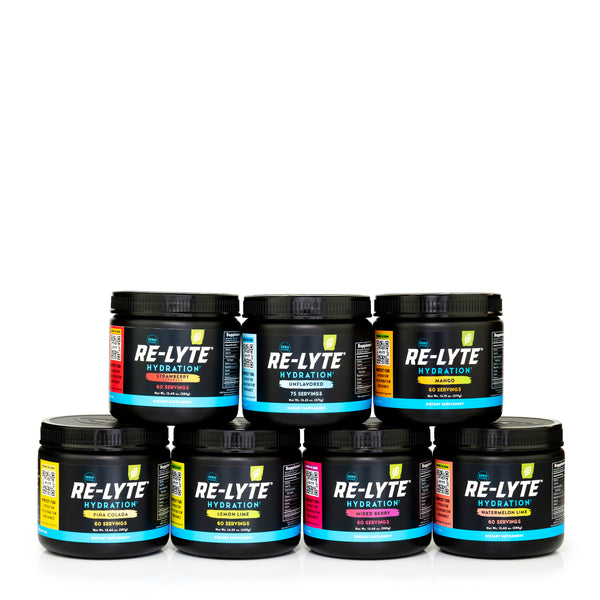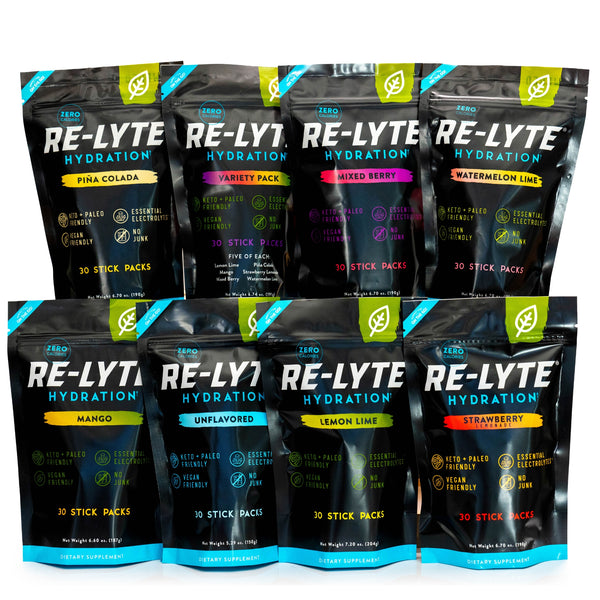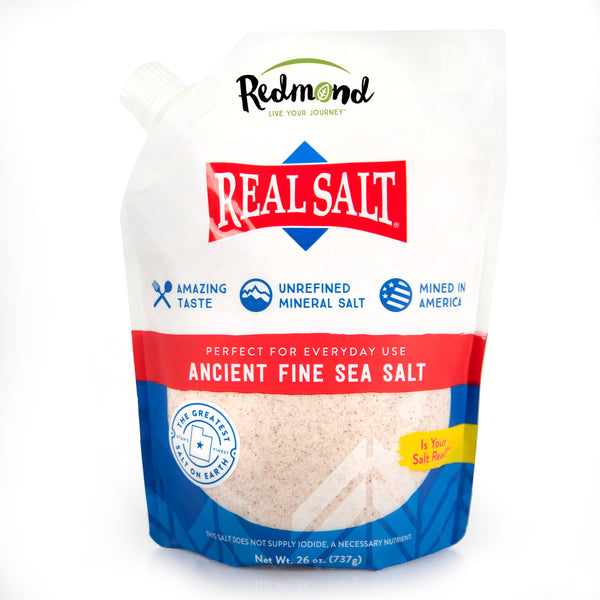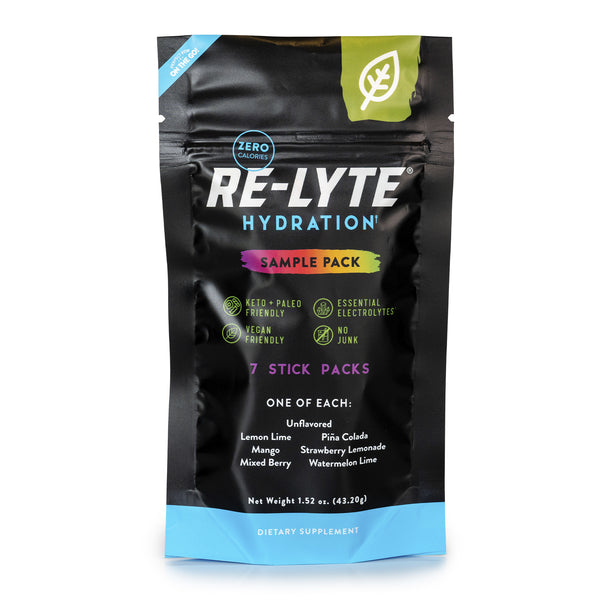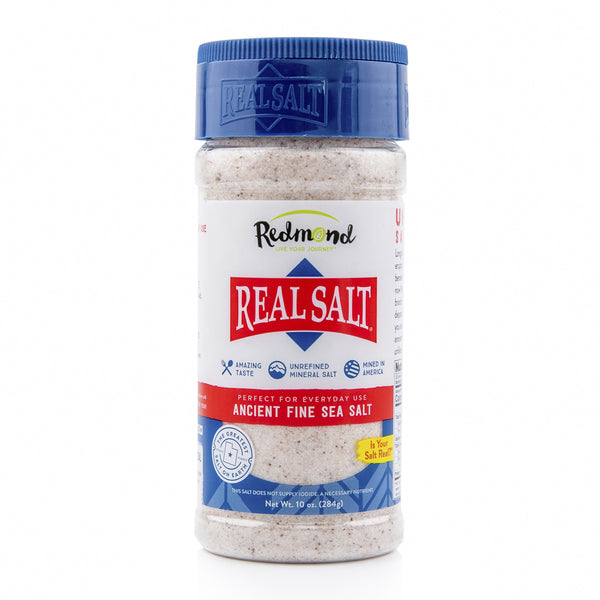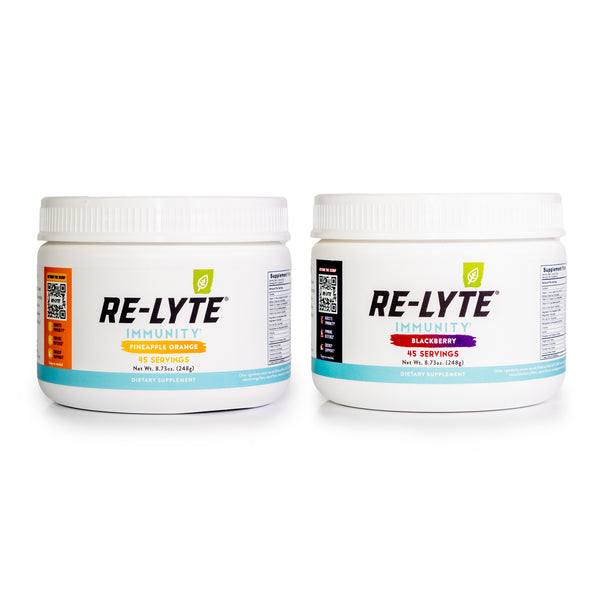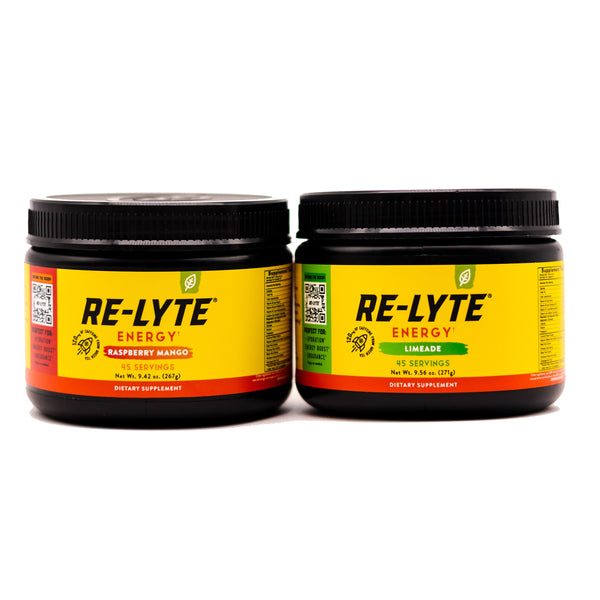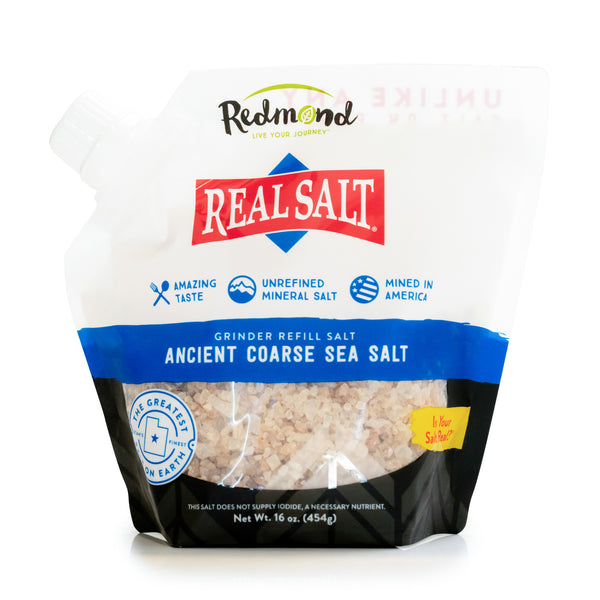Does Dehydration Make You Tired?
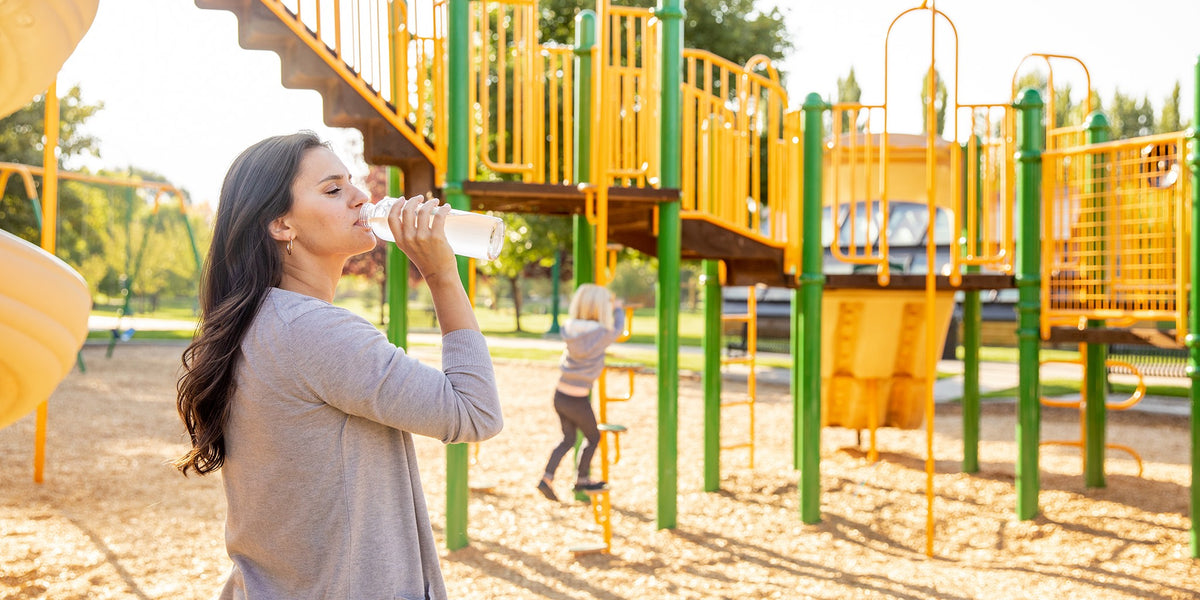
Article at a Glance:
- Research shows even mild dehydration can trigger fatigue.
- Dehydration causes less blood flow to vital organs like the brain, which can make you feel tired.
- Dehydration also decreases blood flow to the muscles, which makes them easily fatigued.
- Dehydration can increase the risk of anxiety and depression, which can trigger fatigue as well.
- If you’re a healthy adult living in a temperate climate, aim for 2.7-3.7 liters of total fluids per day along with plenty of electrolytes.
If you feel like you have to refill that coffee cup morning, noon, and night just to get through the day, you’re not alone. Research shows that 45 percent of Americans who sleep a healthy 7 to 8 hours still feel tired or fatigued up to three days a week.
But as much as caffeine comes in handy when your energy level takes a dive (trust us, we’re big fans of a well-timed Starbucks run), it’s important to figure out the root cause of your fatigue so you can nip it in the bud even if you don’t have a grande latte with an extra shot.
Your sleep habits are obviously the first area to put under the microscope if you feel like an extra from The Walking Dead too often. But if you’re getting a refreshing 7-8 hours of zzz’s per night on average, then take a closer look at your hydration habits.
Why Dehydration Makes You So Dang Tired
A whopping 75 percent of Americans are chronically dehydrated and one of the most common (but easily overlooked) signs you’re one of them is feeling tired (aka fatigue).
In fact, research consistently shows that adults who are even mildly dehydrated report feeling significantly more tired or fatigued than adults who are properly hydrated. One small study published in the Journal of Nutrition found that women who were just 1 percent below optimal hydration levels felt fatigued and unfocused.
A small study in the British Journal of Nutrition found that young men who became mildly dehydrated after exercising felt more fatigue and had worse cognitive function too. Studies also show that people who are dehydrated perform more poorly in sports and other physical activities because they feel more fatigued and less motivated.
Why does dehydration make you so darn tired, physically and mentally?
One of the most likely reasons dehydration sucks your energy supply dry is because of how it impacts your blood pressure. Dehydration decreases your blood volume, which causes blood pressure to drop. Decreased blood pressure means less blood flow to vital organs, like your brain. And a brain that’s not getting enough blood doesn’t feel very energized.
This decrease in blood volume also makes it harder for your heart to deliver oxygen and critical nutrients to your other organs. One organ, in particular, suffers from this lack of oxygen and nutrients— your muscles (yes, your muscles are an organ). They become easily fatigued and have less endurance, which is why dehydrated people perform worse in physical activities.
But your brain, heart, and muscles are far from the only organs and tissues that suffer when you’re dehydrated. Your body needs enough water to transport nutrients and minerals (like electrolytes) to every single cell. And every cell in your body needs enough water, nutrients, and minerals to perform the important functions that make your body tick. When your body doesn’t have enough water, every organ and system inside of you operates at a serious disadvantage.
But if all that isn’t enough to convince you that dehydration is a serious energy suck, there’s one other dehydration-related factor that could make you feel like you’re trudging around in a soaking wet denim jumpsuit every darn day. Dehydration impacts your mood, and your mood impacts your energy level.
Research shows that dehydration makes people feel more anxious and depressed. In fact, in the Journal of Nutrition and British Journal of Nutrition studies I mentioned earlier, dehydrated participants also reported feeling more anxiety, tension, and a low mood. Mental health conditions like anxiety and depression are often accompanied by fatigue, so some of your fatigue could stem from these mood changes.
Fight Fatigue With Hydration
Now that you know why dehydration makes you feel more lethargic than your 17-year-old cat on a sweltering summer day, what can you do to make sure you’re staying hydrated and energetic?
While there’s really no one-size-fits-all hydration plan that will work for everybody, scientists at the U.S. National Academies of Sciences, Engineering, and Medicine have created some helpful guidelines for getting the right amount of fluids each day.
If you’re a healthy adult living in a temperate climate you need to get about 15.5 cups (3.7 liters) of fluids per day if you’re a man and about 11.5 cups (2.7 liters) of fluids per day if you’re a woman.
Now, you don’t necessarily need to drink this much water per day. This guideline includes the fluids that you get in your diet through what you eat (most people get about 20 percent of their daily hydration from food) and beverages other than water (like coffee, tea, juice, etc.). And remember, you also need to adjust your fluid intake based on personal factors like living in a hot or humid climate, your activity level, your health status, and whether or not you are pregnant or nursing.
Of course, fluids are only one part of the hydration equation. Electrolytes are equally important. Water and electrolytes work together to keep the cells throughout your body properly hydrated. Electrolytes play a particularly important role in keeping your heart, muscle, and nerve cells functioning as they should.
If you drink too much water but don’t get enough electrolytes, you could also end up with a dangerous condition called hyponatremia (aka overhydration), which can lead to muscle cramps, muscle weakness, nausea, vomiting, lethargy, headaches, confusion, seizures, or even death.
An Easy Way to Get an Extra Boost of Energy
If low energy levels are getting you down, we have a suggestion— try our Re-Lyte Energy Boost Capsules or our Re-Lyte Hydration mix.
Re-Lyte Energy Boost Capsules contain a blend of Re-Lyte Hydration, caffeine from green tea extract, and two effective adaptogens— ginseng and maca root. The electrolytes help you optimize your hydration, so you don’t have dehydration dragging you down. The green tea extract gives you a quick caffeine boost (because sometimes you need extra energy ASAP). And the adaptogens ginseng and maca root help your body adapt to all forms of stress better, which can boost energy levels naturally over the long term.
If you're more into mixes than capsules, then check out Re-Lyte Hydration mix. It's a clean, energizing drink mix that contains hydrating electrolytes, beneficial adaptogens (ginseng, maca, Rhodiola rosea, and ashwagandha), energy-supporting B-vitamins, and just the right amount of natural caffeine from green tea extract to keep you feeling invigorated and awesome without the jitters or a crash.
Sources:
- Americans Are Tired Most Of The Week— Statista.
- The Water in You: Water and the Human Body— United States Geological Survey.
- Everything you need to know about electrolytes— Medical News Today.
- Bad Mood, Low Energy? There Might Be a Simple Explanation— Time.
- Can Dehydration Affect Your Blood Pressure?— Healthline.
- Water, Hydration and Health— Nutrition Review.
- How Can You Tell If You’re Dehydrated?— Healthline.
- Mild dehydration impairs cognitive performance and mood of men— British Journal of Nutrition.




